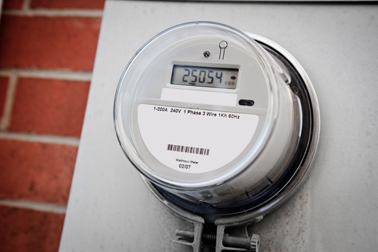
By TreeLiving
Technology that has damaging environmental effects has been a major cause of some of the ecological problems we face today. But eco tech solutions c an also be part of the solution. Smart grids for our electricity have allowed new ways of allocating, managing and conserving electricity. The smart meter, which allows two way communications between the consumer’s home and the energy supplier, is what you may have in your home to show for it.
Between late 2011 and now, the utility companies have installed smart meters in many thousands of U.S. homes. Eight months ago, about 25 percent of homes had one. Now that figure is around 33 percent – a huge leap. Utility suppliers in sixteen states will have installed smart meters across their operations. That’s good news for energy conservation, because the eco tech thinking behind the smart meter could be part of strategies to keep energy consumption greener.
What exactly does a smart meter do? The digital technology that underlies the smart meter allows information about your energy usage to be relayed to the supplier in real time. The obvious benefit is an end to those annoying estimated bills that can be so wildly wrong. The other primary benefit is that it allows consumers to monitor and manage their energy consumption more effectively. As well as seeing what is being consumed and how quickly, customers have the option of cheaper off-peak electricity packages.
For the supplier it’s a win-win situation as well. They are instantly notified about power outages or other issues relating to the grid, for example, so that they can respond more quickly and provide a better service. The smart meter and the smart grid contribute to more effective, less wasteful power delivery – much needed, given the strain on the old grid and creaking old infrastructure.
The smart grid allows extended use of solar and other renewable energy resources, including buy-backs by suppliers from households who generate more than required for their own needs. The smart meter is integral to this, and this eco tech development has clear green potential. There have been some objections though, mainly to do with privacy (the monitoring of information about power usage). Another concern is health, since smart meters emit pulses of radiation (radiofrequency, or RF) that critics say is harmful.
Another problem is that smart meters really require smart appliances to go with them. Critics argue that the roll-out of smart meter installations make unfair demands on customers. It has also been argued that customers aren’t getting the savings that smart meters promise, though they are the ones who are effectively paying for it.
Debates continue, but in the US and worldwide, smart meters are the way things are going, for better or for worse. Whatever the verdict is the potential for them to qualify as an eco tech solution is clearly there.

